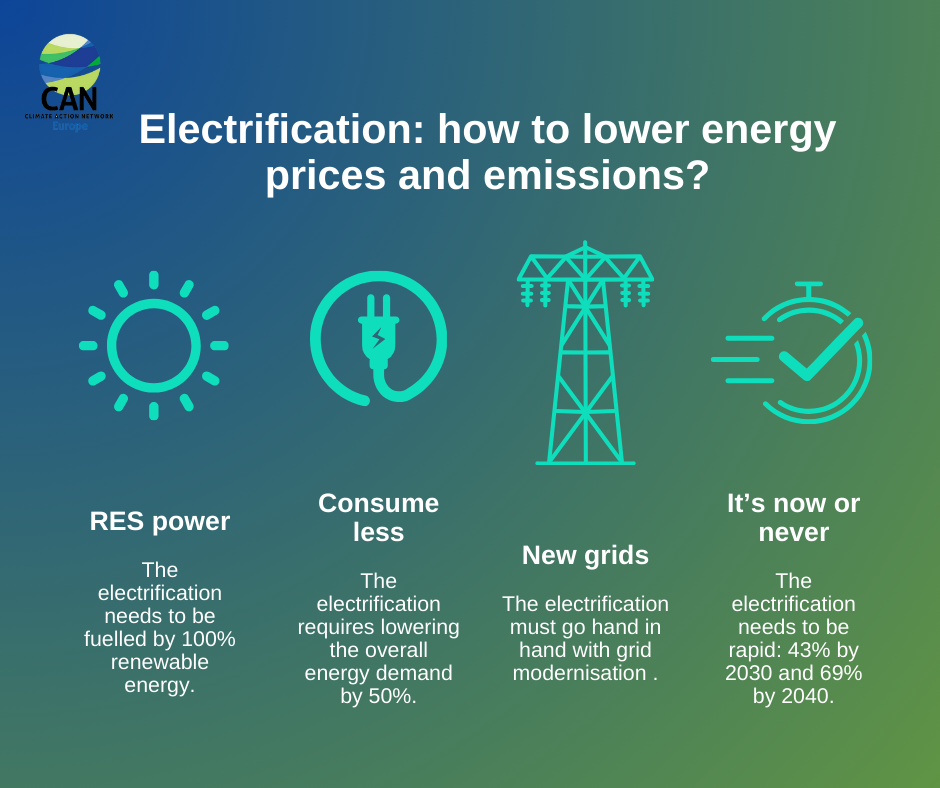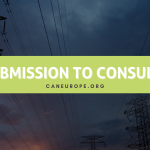Brussels, 16 December 2024 — If the EU does not urgently modernise its grid network, costs relating to congestion could rise from 26 billion euro in 2030 to a staggering 103 billion euro in 2040.
Ahead of the EU Energy Council on Monday, CAN Europe presents its blueprint for an Electrification Action Plan that ensures costs are kept to a minimum in the EU’s transition to a 100% renewable, climate-neutral energy system by 2040. It urges the European Commission to promote renewable energy, energy efficiency and fossil fuel phase out dates in its electrification strategy, achieving a direct electrification rate of 43% by 2030 and then reaching 69% by 2040, compared to the current rate of 23%. As demonstrated in the Paris Agreement Compatible energy scenario, the fastest way to reach high electrification rates is to tackle it from both ends – lowering the overall energy demand by 50% and rapidly electrifying demand by shifting technologies and supplying cheap renewable power. However, electrification will only make sense if we modernise our energy infrastructure. Not doing so could result in grid management costs increasing from 26 billion euro in 2030 to a staggering 103 billion euro in 2040 if business-as-usual continues.

Thomas Lewis, Energy Policy Expert at Climate Action Network Europe, said:
“We urge the European Commission to enable high electrification rates, powered by cheap renewables, while Europe invests in grids, flexibility, and interconnection. But electrification alone is not enough. It must be coupled with energy demand reduction and fossil fuel phase out dates as well as measures to protect the most vulnerable. Saving the EU billions of euro while ensuring households are shielded from drastic price increases.”
Moreover, the EU’s continued use of fossil gas is pushing electricity prices higher. Although gas only accounts for 20% of the EU’s electricity mix, it sets the price for 63% of the time. Weakening the influence of gas on electricity can lower electricity prices for homes and industry, incentivising them to switch to technology powered by renewable electricity, helping to make Europe more competitive in a decarbonised manner. Furthermore, opening the doors to false solutions, such as nuclear-based electrification, will further delay the decarbonisation of the energy system and ultimately, raise costs for industry and households.
For more information and media requests:
James O’Connor, Senior Communications Coordinator, james.OConnor@caneurope.org, +353 87 036 1782
Kasia Piasecka, katarzyna.piasecka@caneurope.org, +48 516 634 366



